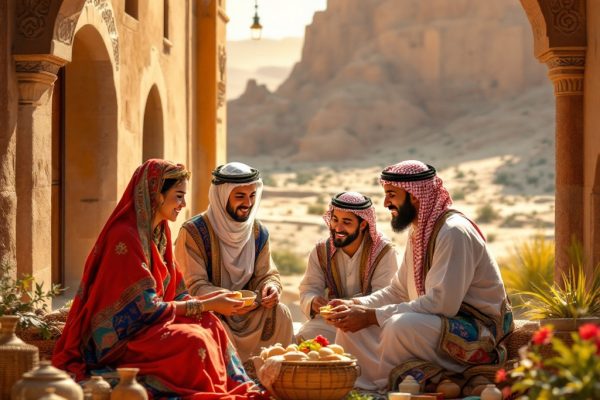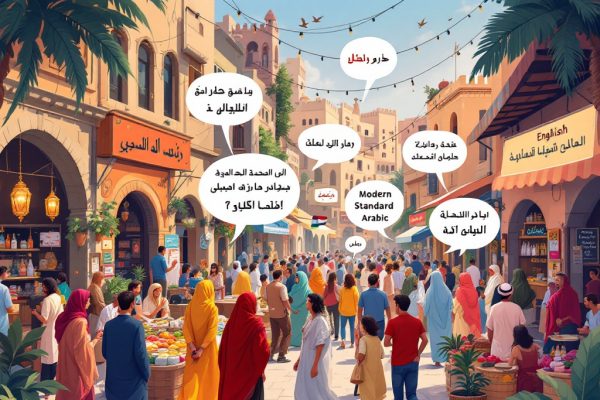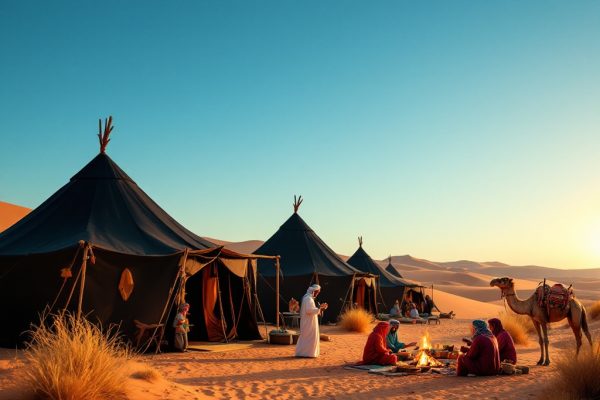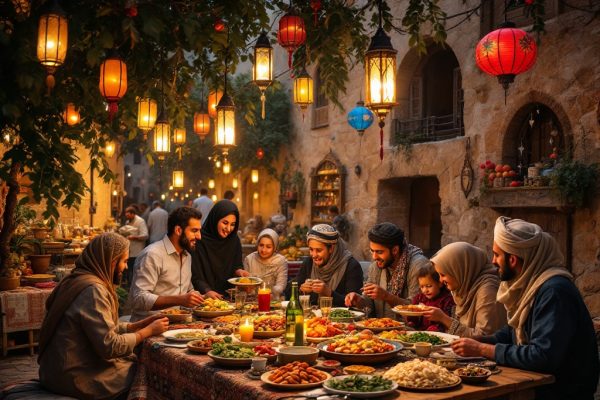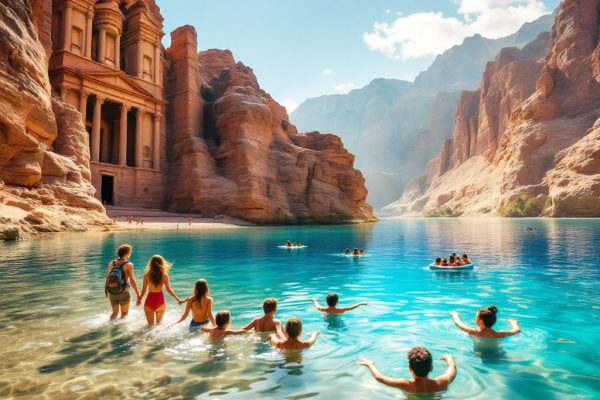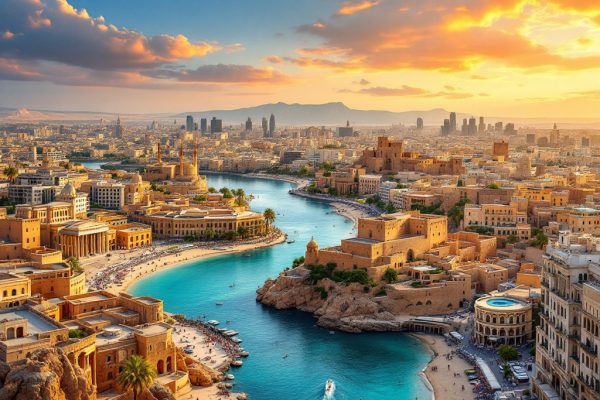Wadi Rum Nomads: Who Are They?
Journey into the heart of Jordan’s Wadi Rum and discover the captivating world of the Bedouin nomads. These resilient people, deeply rooted in the desert for generations, invite you to experience their unique culture and breathtaking landscape. Explore ancient traditions, savor authentic Bedouin cuisine under a starlit sky, and traverse stunning sandstone mountains. By experiencing Wadi Rum with the Bedouin, you support their community and help preserve this UNESCO World Heritage Site. Embark on an unforgettable adventure; explore Wadi Rum today.
Important information
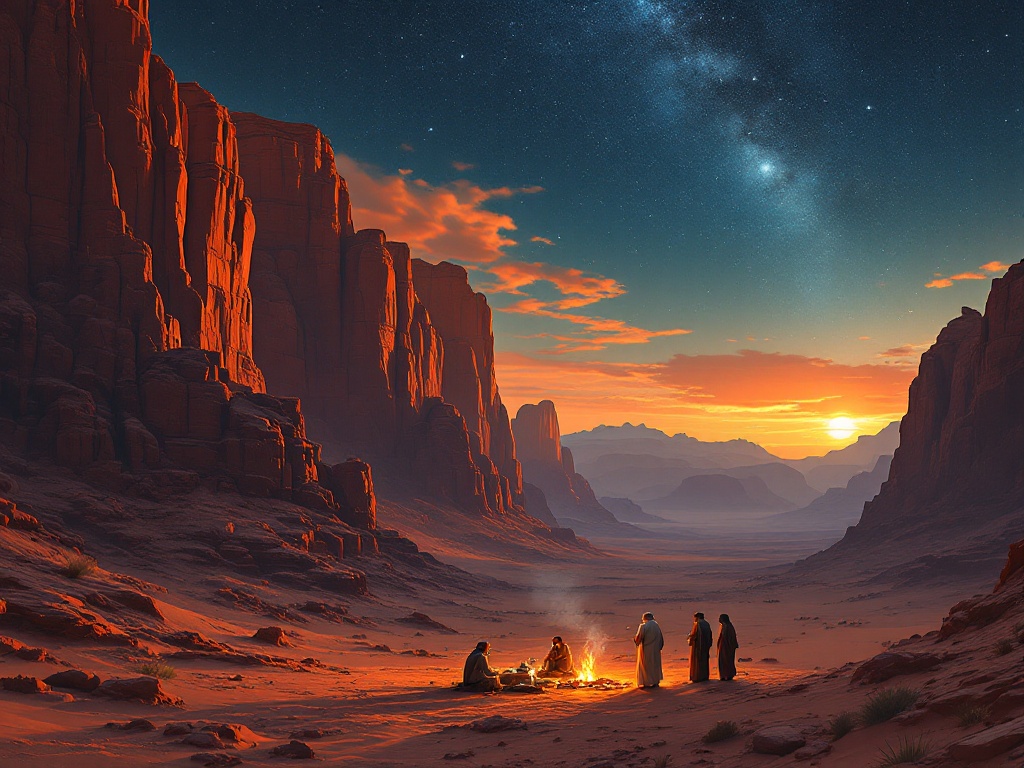
- The Bedouin tribes of Wadi Rum are nomadic people with a rich cultural heritage rooted in herding, hunting, and trading, now sharing their traditions through tourism.
- Tourism plays a crucial role in preserving Wadi Rum’s heritage by funding conservation efforts and empowering local Bedouin communities.
- Wadi Rum is a UNESCO World Heritage Site, attracting visitors with its stunning desert landscape and ancient inscriptions.
- Bedouin hospitality is central to their culture, exemplified by shared meals and cultural exchanges that create bonds between locals and visitors.
- Visitors can experience Bedouin culture through various activities, including camel rides, traditional dinners, storytelling, and exploring the desert landscape.
Who Are the Wadi Rum Nomads?
The Bedouin tribes of Wadi Rum, deeply rooted in the desert for generations, possess a unique lifestyle and rich cultural heritage. These nomadic people have historically thrived as herders, hunters, and traders, passing their traditions down through time. Today, they also share their profound love for the desert by offering tours and activities, helping visitors forge unforgettable memories of this extraordinary environment.
The Bedouin Heritage and Culture
Experience the rich culture of Wadi Rum’s Bedouin people. Discover their traditions of hospitality, music, and poetry. Learn about their nomadic history and unique way of life. Share a meal and hear their stories for a deeper understanding of this enduring culture.
The Nomadic Lifestyle in Jordan
The Bedouin of Wadi Rum, Jordan, maintain a nomadic lifestyle deeply intertwined with the desert. They reside in tents woven from goat hair, raising goats and camels for their livelihood. Daily life revolves around tending to their herds, gathering resources, and crafting traditional handicrafts. Tourism has emerged as a new source of income, enabling them to share their rich culture through guided tours and cultural exchanges. Despite the influences of the modern world, the Bedouin preserve their core values and traditions, adapting to change while safeguarding their unique heritage.
Wadi Rum as a UNESCO World Heritage Site
Wadi Rum, a UNESCO World Heritage Site in Jordan, captivates visitors with its stunning natural beauty and rich cultural history. Towering sandstone mountains and vast red dunes create a dramatic landscape, adorned with ancient inscriptions and petroglyphs that whisper stories of the past. This unique environment draws researchers and tourists alike.
Tourism’s Vital Role
Tourism is essential for preserving Wadi Rum’s heritage. It funds crucial conservation efforts, protecting the landscape and archaeological sites.
Empowering Local Communities
Tourism empowers local Bedouin communities by creating economic opportunities, allowing them to uphold their traditions while sharing their culture with the world. This sustainable approach fosters economic development while prioritizing cultural preservation, ensuring Wadi Rum continues to thrive.
The Role of Tourism in Preserving Heritage
Tourism plays a vital role in protecting Wadi Rum’s heritage. It provides funding for conservation projects and raises awareness about the site’s cultural and natural importance. The Wadi Rum Nomads are essential to this process, leading tours and sharing their knowledge. They teach visitors about the delicate desert environment and explain Bedouin traditions. This involvement not only creates economic opportunities for the Nomads but also encourages cultural exchange and preserves their unique heritage.
Unique Experiences Offered
Experience the rich Bedouin culture, learning about their captivating heritage and traditions. Discover their unique nomadic lifestyle and enjoy a traditional dinner with them. Be entertained by captivating stories, lively music, and vibrant dance performances. Explore the breathtaking desert landscape by jeep or on invigorating hikes. Finally, marvel at the starlit sky with insights from your Bedouin hosts.
Cultural Exchanges with Local Bedouins
Experience the captivating Bedouin culture through an immersive camel ride and a shared traditional meal. Discover their rich history, customs, and renowned hospitality. Gather around crackling fires and forge lasting bonds through shared stories, as you’re welcomed into their unique way of life. Connect with a vibrant culture and create unforgettable memories.
Hospitality and Traditional Meals
Wadi Rum Nomads deeply value hospitality, expressing their generosity and strong community bonds. Visitors experience this firsthand through traditional Bedouin welcomes, sharing tea and meals, creating connections and memorable moments. These shared meals showcase Bedouin culture, enriching the visitor experience while honoring guests and strengthening community ties. Bedouin dinners are a significant aspect of Wadi Rum hospitality, a cultural feast highlighting traditional cuisine and strengthening bonds between hosts and guests. This unique culinary experience offers a taste of nomadic heritage and provides insight into their way of life.
Bedouin Dinner: A Cultural Feast
A Bedouin dinner under the Wadi Rum stars is the heart of nomad hospitality. This traditional meal offers an authentic taste of Bedouin cuisine, a cultural feast of shared dishes. It’s also a unique opportunity to exchange stories and cultures, forging powerful bonds between nomads and their guests. The experience is truly unforgettable.



